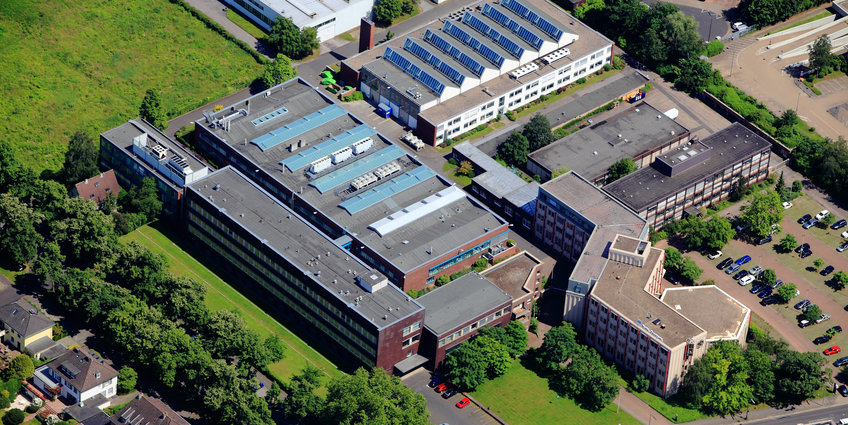The Max Planck Institute for Sustainable Materials will explore methods for producing, utilising, and recycling materials in a climate-friendly way
Understanding and managing global change is a task to which the Max Planck Society is committed. This is also reflected in the reorientation of the Max-Planck-Institut für Eisenforschung. The Düsseldorf-based institute has been investigating how to optimise steel and other metallic for applications in energy, mobility, infrastructure, production, and medicine over the past few decades. In recent years, researchers have increasingly directed their focus on how steel and other metallic materials can be produced with minimal greenhouse gas emissions, as well as on maximising the efficiency of limited raw materials for electronic devices, electric motors, and generators. To reflect this shift in research focus, the Institute has undergone a name change: it will now be known as the Max Planck Institute for Sustainable Materials.

The Max-Planck-Institut für Eisenforschung becomes the Max Planck Institute for Sustainable Materials.
© MPI for Sustainable Materials
Around twenty percent of global greenhouse gas emissions are caused by the production of materials that people need for buildings, infrastructure, and various products. The steel industry alone accounts for eight percent of CO2 emissions. At the same time, many of the raw materials needed for modern societies and a climate-friendly economy are in limited supply or are extracted under environmentally and socially questionable conditions. Examples include aluminium, used for lightweight car bodies, the production of which produces toxic red mud: lithium, essential for batteries, and sourced from a limited number of locations globally; and rare earth metals, vital for smartphones, electric motors, and wind turbine generators, yet also facing scarcity issues.
Solutions for a sustainable metal industry
“Metals, semiconductors, and numerous other materials form the bedrock of global society. Without them, there would be no housing, no mobile phones, no means of transportation, and no infrastructure – in short, society as we know it today would cease to exist. However, the production and utilisation of such materials significantly contributes to greenhouse gas emissions and environmental deterioration,” explains Dierk Raabe, Managing Director at the Max Planck Institute for Sustainable Materials. “At our Institute, we address this very challenge: how can we establish a new industrial base within a short period of time? The ongoing reorientation reflects the shift in our focus areas. We are working on fundamental questions about how our modern industrial society can become more sustainable overall. “
Researchers at the Max Planck Institute in Düsseldorf are looking for ways to produce iron and steel from ores using hydrogen, aiming to replace coal in the process. They are investigating how to enhance metal recycling techniques, particularly for rare and energy-intensive metals. Moreover, they aim to reduce the environmental impact of the metals industry in general, such as the development of low-CO2 steel derived from red mud, a toxic waste product from aluminium production. In the development of new materials, they are increasingly using artificial intelligence to develop new materials.
“Climate change and securing our livelihoods are among the greatest challenges facing humanity today,” says Max Planck President Patrick Cramer. ” The Max Planck Society is committed to contributing to finding solutions for these challenges. Today’s reorientation of the Max-Planck-Institut für Eisenforschung towards research into sustainable materials underscores this commitment, reaffirming its dedication to adressing scientific and social progress.”







